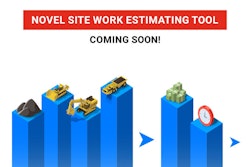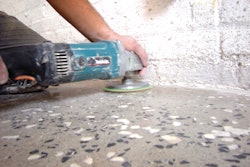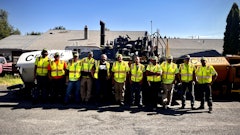There are many concrete contractors cutting their costs to the bone - past the financial fat of their expenses and into the muscle of their profits. One way to avoid this is by sweating the "little things" at bid time.
Bid time is the one formal time contractors can work to ensure they don't give up more than they have to. In the hustle and bustle to get bids completed, it is easy for contractors to overlook a few items and leave behind a few percent points of profit. Certainly when work was plentiful and profits could be easily found, bad bidding habits were formed. Here are a few examples of the "little things" that should be easy for you to rethink.
#1. Build equipment costs into your bids.
Even during the good times many contractors neglected to build their equipment costs into their bids, but especially during difficult economic times it is very tempting to simply not include the expense associated with equipment, leased or owned, when building an estimate. Smart contractors build at least some equipment costs into their bids to cover their equipment use. Attach some estimated hourly cost for the use of your trucks, earthmoving equipment, placing equipment, etc.
#2. Stop giving away services.
One example of a service I see contractors neglecting to charge for is cleanup, both after a job but especially the labor they spend getting an area cleaned up enough to complete their own work. While this type of service has been used as an incentive in the past to win over a customer, such efforts should be re-evaluated in light of the current economic situation. If you can afford to pay the labor associated with cleanup, then you're in a better financial situation than others. While it doesn't make sense to stop giving away every service, it is a situation that every contractor needs to assess for his company and determine what he may need to charge to better capture all of the costs associated with performing work.
#3. Include 'qualifying' conditions.
Too many contractors have been burned in the past when they discovered the undetected water problem that suddenly appeared when they tore out a parking lot or driveway. That is why it is critical today to include qualified conditions that, if present and pose an obstacle to completing the work as bid, will be covered financially by the customer. Certainly working in known areas of your community can assist your knowledge, but even "home field" work does not guarantee problem-free work. Whether you are performing work in well-known areas or a new market, make sure you include some qualifying language to your bid prior to submitting your final copy to the customer.
#4. Include clear wording about change orders.
All contractors have experienced a situation where they start work for a customer only to have that customer suddenly decide they want to go in a slightly different direction. My experience, both as a contractor and as a consultant to contractors, is that once an original plan is altered the following actions are seldom profitable. There are a myriad of reasons for lower profits but a few worth noting include:
- Contractor bid the job slim to begin with and now all profit cushion is gone.
- Contractor failed to spend as much time planning the new direction as he did the original one.
- Customer now has a new set of expectations for both quality and speed of completion, with no understanding of how the change could cost more.
Including a change order clause is as simple as including it in your bid. Also, if you do utilize this clause be sure to inform your foremen about this so they will not give in to a pleading customer who is sweet talking your foreman into a "small change." These "small changes" will most often cost you big money - money you don't have built in to your estimate.
Any reputable contractor has built his or her business on a strong financial commitment to integrity and accuracy. While it is certainly tempting today to throw all of this away just to land work you must resist this temptation and hold your course. Customers, good customers, respect contractors who are loyal, committed to excellence and dedicated to doing things right the first time. Be such a contractor.
Brad Humphrey is president of Pinnacle Development Group, a consulting and training firm that specializes in the construction industry. Brad will be speaking at the 2011 World of Concrete. For more information, visit www.pinnacledg.com.



















